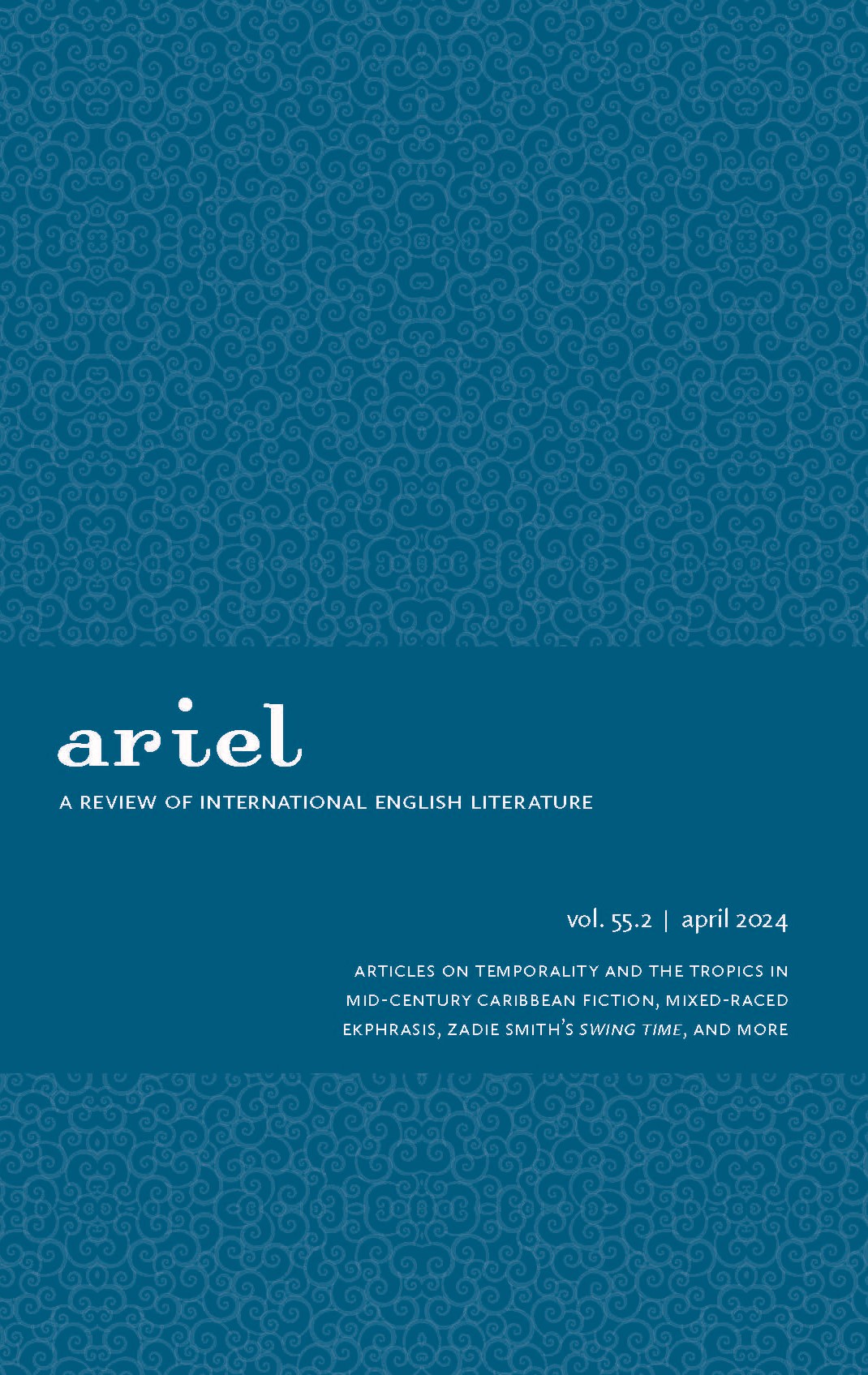Saprophytic: Decomposition and Tropical Environmental Time in Caribbean Literature
Keywords:
Wilson Harris, Guyana, Rot, Decomposition, Edgar Mittelholzer, Alejo Carpentier, Hauntings, temporalityAbstract
In the period of Caribbean decolonization (1950-1965), a subset of Caribbean authors reimagined the temporal role of the continental Caribbean’s tropical interior: rather than an space outside history that colonists or residents could use as a resource to construct historical progress, the tropical hinterlands became a historical agent that possessed and assimilated people into an alternative temporal order through a saprophytic process. This essay focuses on three novels - Wilson Harris’s The Palace of the Peacock(1960), Edgar Mittelholzer’s My Bones and My Flute (1955) and Alejo Carpentier’s The Lost Steps (1953) - that enact what I term a saprophytic temporality: a form of time in which the past constantly being recycled, decomposed and transformed into new forms.
This process of continual decomposition and regeneration also causes Caribbean residents to realize their implication in ongoing imperial violence against the interior and its Indigenous inhabitants. In effect, the exploration novels of the 1950s and 60s implied that the alternative to colonial development was not the independent Caribbean nation - but a stranger and more unfathomable form of existence defined by the temporality of the Caribbean environment.


